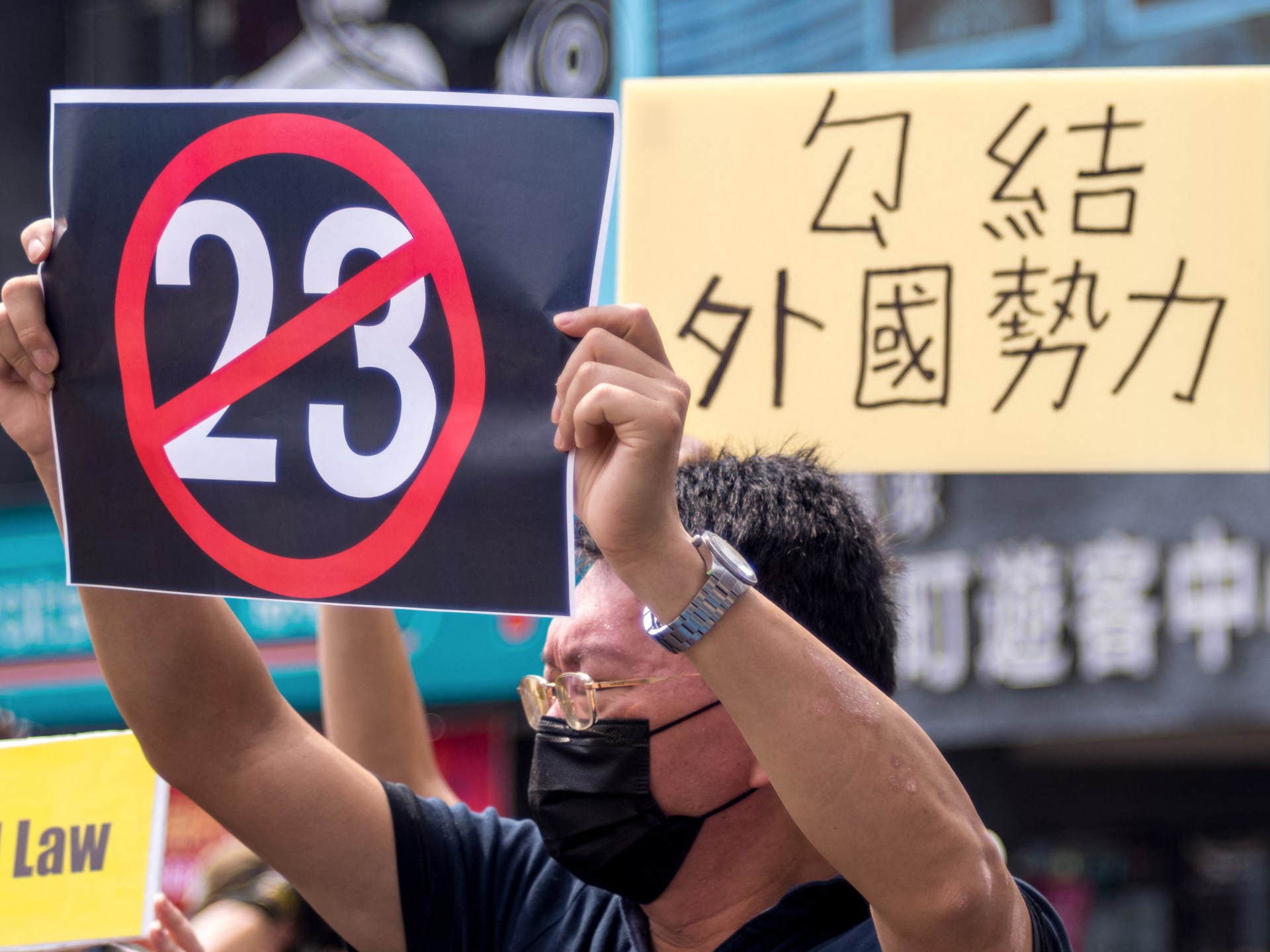
Yahidne, Ukraine – Between the ages of 90 days and 91 years, almost all the inhabitants of this northern Ukrainian village were taken to a underground hell – and some did not come out alive.
Drunk on stolen liquor and with impunity, Russian soldiers humiliated, beat, raped, tortured and murdered the villagers, survivors report – casually, at the slightest objection, a critical look or simply out of a sadistic whim.
This rampage, looting and destruction of property embodies the “essence” of what the Kremlin and its master were planning across Ukraine, Ukrainian President Volodymyr Zelensky said earlier this month.
“It is only a village, but it reflects the essence of [Russian President Vladimir] Putin’s worldview, his true goals,” Zelensky said on May 8.
In March 2022, Russian soldiers drove 368 villagers, including six dozen children, into the Basement of her elementary schoolThe villagers spent 27 days in the damp, rancid and noisy darkness without electricity or heating, with little food and so little fresh air that most suffered from hypoxia and even catatonia.
They remained there right next to the dead – 17 people, including 10 elderly villagers, who died there – but Russian soldiers allowed other prisoners to take them out and bury them just days later.
Death and torture
Yahidne means “rich in berries”.
The village in the northern Chernihiv region is nestled between a pine forest and a busy highway to Kyiv.
The Russians invaded on March 3, 2022. They began stealing everything from washing machines to bedsheets, drinking alcohol, killing and eating all the livestock, poultry and even a dog, Mikhail, a 67-year-old pensioner, told Al Jazeera in late April as he watched his white goat grazing on fresh grass under the pine trees.
They urged several pro-Moscow villagers to tell on others – and humiliated the pro-Ukrainian majority by forcing them to sing the Russian anthem, kneel or undress, and beat them if they spoke Ukrainian or criticized the invasion.
They shot Viktor Shevchenko, a 50-year-old father of three, in his vegetable garden and did not allow his family to bury his body for 21 days, his father Mykhailo told Al Jazeera.
The Russians occupied his house by walking past the body several times a day – and placed a landmine underneath it before fleeing the village.
Viktor’s younger brother Anatoli has disappeared and the family hopes that the Russians have taken him with them.
“His body was never found,” said Mykhailo, a frail septuagenarian standing just yards from where Viktor was murdered.
The underground inferno
Russian officers chose the school, a two-story brick building near the forest, as their headquarters.
Fearing Ukrainian counterattacks, they decided to use the villagers as human shields – forcing them into the basement, including several disabled elderly people who had to be brought in on wheelbarrows, villagers told Al Jazeera. One of them was 91-year-old Dmytro Muzyka, who survived World War II as a child and did not wake up after his first night in the basement.
The bodies of the dead lay on the ground for days, their names and dates of death scrawled on a wall alongside lines from the Ukrainian national anthem and children’s doodles.
When they were finally allowed to bury the dead, several villagers were shot at by a group of Russian soldiers passing by the cemetery – and were forced to jump into freshly dug graves, villagers reported.
The only sickly prisoner released was 84-year-old Mariya Tsymbaliuk, who suffered from heart disease.
She crawled out and saw that her house had been razed to the ground. She sat next to the ruins until she died three days later.
The cellar consisted of several rooms, but each person was only given half a square meter of space. The prisoners slept sitting up and developed ulcers on their legs and feet.
“I want a girl,” one of the Russian soldiers told the crowd, then picked out a woman. Otherwise, he promised to “shoot every fifth villager” if she refused, said pensioner Mikhail.
Several older women were allowed to cook in cauldrons outside the cellar, so that each prisoner received a small portion of porridge, potatoes or macaroni.
The Russians rarely let other prisoners go out to use the school toilets, and some overcame their shame and relieved themselves in buckets in front of the others.
The worst moment, however, came when the Russians began digging a huge pit at the end of March. There were fears that they planned to kill and bury everyone there.
“We thought that was it,” Mikhail said. a diabetic who almost died from insulin shock because the Russians didn’t allow medicine in the basement.
Ukrainian prosecutors and volunteers have identified some Russian soldiers who entered Yahidne. In early March, the Chernihiv Regional Court sentenced 15 of them in absentia to 12 years in prison for war crimes.

Life in limbo
Russian guards did not let Tamara Klimchuk out of the basement when a rocket hit the two-story house she had built with her late husband.
The house burned down along with hundreds of books and family photographs; all other valuables had already been looted.
“My memories are burned down,” Klimchuk, 66, stocky and dressed in a checked shirt, told Al Jazeera.
At the end of March 2022, unexpected pressure from Ukrainian forces, poor supply routes and heavy losses forced Moscow to withdraw its troops from northern Ukraine.
They left Yahidne after mining the town and the surrounding forest, leaving behind a howitzer, hundreds of rounds of ammunition and several soldiers who were so drunk and disoriented that they stayed behind and were later captured by the Ukrainian military.
Almost 120 houses in Yahidne were destroyed or damaged.
Since the Russians left the village, numerous foreign dignitaries, including US Secretary of State Antony Blinken, have visited Yahidne and promised to finance reconstruction. The Latvian government offered to rebuild seven burned-down houses – including Klimchuk’s.
Kiev also provided money for Jahidne and promised uniform brick houses and an “occupation museum” in the basement of the school.
But two years – and two cold winters – later, some villagers are still unable to move into their homes because there is no electricity or heating.
Builders erected the walls of Klimchuk’s new house and installed plastic windows. But by autumn 2022, the Latvian money had run out and it was not eligible for renovation by Ukrainian contractors.
These days, Klimchuk lives in a kind of residential limbo – in her tiny summer kitchen, next to a makeshift stove, piles of stuff and a dog.
Several other villagers also complained to Al Jazeera about the quality and speed of work carried out by the government-hired construction companies, but refused to give their names or other details.
The reconstruction efforts in Yahidne are a classic case of “too many cooks spoil the broth,” said a Kyiv analyst.
“There was not enough money for Yahidne because [authorities] “They pinned their hopes on volunteers and sponsors, but their capabilities were not sufficient,” Alexey Kushch told Al Jazeera.






Recent Comments